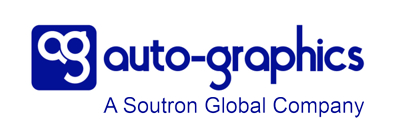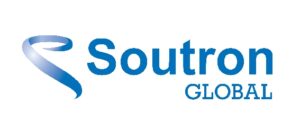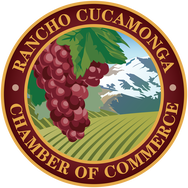A new chapter is being written at Auto-Graphics!

Auto-Graphics is now part of Soutron Global, uniting our strengths in archives, libraries, museums, corporate information centers, knowledge hubs and preservation solutions.
For you, this partnership ensures enhanced product capabilities, continued innovation and expanded support.
The history we can recount puts our combined companies in the position of knowing our roots and where our focus is and should be. We are committed to a seamless transition for our clients and are excited about the future.
Explore the NEW Auto-Graphics home at Soutron Global, and discover what's ahead:
- Auto-Graphics & Soutron Product Information – Stay informed about our solutions.
- Auto-Graphics Customer Support – Access the same expert assistance and resources you always have.
- Latest News & Updates – Get the latest news and improvements from Soutron Global.
To contact Auto-Graphics directly, call us at +1 (800) 852 8686 (Monday to Friday 8.00am - 8.00pm EST)
Thank you for your continued trust and partnership. We appreciate your ongoing support of Auto-Graphics, now part of Soutron Global.

Improving Access, Search & Preservation
SaaS Solutions for Archives, Libraries, Museums & Knowledge Hubs
Read the Soutron Global Acquisition News
Standards & Compliance
In a changing and dynamic technology environment, Auto-Graphics has developed the AGent Library Software Platform, leveraging decades of library software development expertise and technologies to provide the greatest value and benefit to the libraries we support through standards-based interoperability.
Auto-Graphics has participated and contributed to the development, testing and implementation of standards that are used throughout the library industry, and is celebrating being the leader in providing cloud-based resource sharing solutions, having done so for the past 25 years. As active participants in a number of NISO and ISO standards committees, all of our applications are built with an open system approach providing our library customers with integration and access to best-of-breed technology applications.
ANSI/NISO/ISO Standards
NISO, the National Information Standards Organization, a non-profit association accredited by the American National Standards Institute (ANSI), identifies, develops, maintains, and publishes technical standards to manage information in our changing and ever-more digital environment. NISO standards apply both traditional and new technologies to the full range of information-related needs, including retrieval, re-purposing, storage, metadata, and preservation.
Founded in 1939, incorporated as a not-for-profit education association in 1983, and assuming its current name the following year, NISO draws its support from the communities it serves. The leaders of over 70 organizations in the fields of publishing, libraries, IT, and media serve as its voting members. Hundreds of experts and practitioners serve on NISO working groups, committees, and as officers of the association.
NISO recognizes that standards must reflect global needs and that our community is increasingly interconnected and international. Designated by ANSI to represent U.S. interests as the Technical Advisory Group (TAG) to the International Organization for Standardization’s (ISO) Technical Committee 46 on Information and Documentation. NISO also serves as the Secretariat for Subcommittee 9 on Identification and Description, with Todd Carpenter serving as the SC 9 Secretary. NISO is well positioned to bring together all interested parties, wherever they are based.
NCIP
NCIP, the NISO Circulation Interchange Protocol, is intended to address interoperability between self-service applications and circulation applications, between and among various circulation applications, between circulation and interlibrary loan applications, and between other related applications. Vendors and products Auto-Graphics has tested with and is in production with include:
Auto-Graphics VERSO
TLC CARL
III Polaris
SirsiDynix
Evergreen
ExLibris Voyager (custom-built NCIP connector)
ExLibris Aleph
III Sierra
KOHA
Alma
OCLC is supported via NCIP API
Overview
NCIP, the NISO Circulation Interchange Protocol, is a technical standard developed by the National Information Standards Organization and approved by the American National Standard Institute. The standard, ANSI/NISO Z39.83, includes two parts:
The standard defines a computer-to-computer protocol that exchanges messages between and among computer-based library applications to enable them to perform the functions necessary to lend and borrow items, to provide controlled access to electronic resources, and to facilitate co-operative management of these functions.
Version 1 of the standard was approved in 2002, and version 2 was approved by the NISO membership in 2008.
The standard consists of 45 services. Each service consists of a message and the response to the message. The services support look up, update, and notification functions.
The standard supports several application areas, each of which has an Application Profile. The Application Profile includes only the services (i.e., messages that relate to the function). Three application profiles were developed by the NISO Standards Committee that wrote NCIP:
- Direct Consortial Borrowing (DCB): the exchange of user and item information between and among circulation systems. Four DCB Profiles were developed, though DCB 3 is the one most widely implemented.
- Circulation/Interlibrary Loan Interaction: Exchange of circulation data between a library’s ILL system and its own circulation system. The Borrowing CILL Profile supports the borrowing function and a second CILL Profile describes the lending functions.
- Self-service Circulation: the exchange of circulation data between a self-check application and the local circulation system.
After the standard was approved, a fourth application profile was developed: Patron Authentication Profile, designed to exchange data to verify the identity of a patron.
In addition, several library automation companies have produced their own application profiles to describe how their ILL or ILS system uses the NCIP messages.
Application Profiles Supported
AG supports the Circulation-Interlibrary Loan (CILL) Borrowing and Lending Profiles. These profiles define the subset of messages exchanged between a library’s interlibrary loan (ILL) system and its local circulation system.
The borrowing profile permits an ILL item to be checked out to the local patron. The circulation system creates a temporary bibliographic and item record, checks out the item to the patron, processes overdue and recall notices, and discharges the item when the patron has returned it.
The lending profile enables staff to check out an item on the circulation system and have the ILL request updated automatically. The circulation system manages the lending transaction, sends overdue and recall notices to ILL, and discharges the item when the loaned item has been returned.
Both profiles are designed to eliminate duplicate record-keeping, streamline functions, and reduce workload for library staff.
Messages Supported
The CILL Profiles include messages the ILL system initiates and messages the ILS system initiates. SHAREit initiates appropriate messages to the ILS, as well as responding to messages sent by the ILS.
SHAREit supports the following messages in the CILL Borrowing Profile:
- Lookup User
- Accept Item
- Cancel Request Item
- Check In Item
- Circulation Status Updated
- Item Checked In
- Item Renewed
- Item Request Cancelled
- Item Request Updated
- Item Requested
- Item Updated
- Recall Item
- Renew Item
- Report Circulation Status Change
- Update Circulation Status
- Update Item
- Update Request Item
SHAREit supports the following messages in the CILL Lending Profile:
- Accept Item
- Cancel Request Item
- Check In Item
- Circulation Status Updated
- Circulation Status Change Reported
- Item Checked In
- Item Checked Out
- Item Renewed
- Item Request Cancelled
- Item Updated
- Recall Item
- Renew Item
- Report Circulation Status Change
- Request Item
- Update Item
- Update Request Item
Z39.50
ISO ILL Protocol (10160/10161)
Overview
The ISO ILL Protocol is an international standard that defines computer-to-computer communication between interlibrary loan (ILL) systems. This enables ILL systems to send and respond to ILL requests to libraries using different, Protocol-compliant, ILL systems.
The 1997 second edition was published in three parts:
- Information and Documentation – Open Systems Interconnection – Interlibrary Loan Application Service Definition (10160)
- Information and Documentation – Open Systems Interconnection – Interlibrary Loan Application Protocol Specification (10161)
- Part 1: Protocol Specification (10161-1)
- Part 2: Protocol Implementation conformance statement (PICS) proforma (10161-2)
In 2007 ISO members reaffirmed the second edition for another five years.
Messages Supported
The Protocol defines 21 services, or messages, that support the ILL workflow from the sending the initial request, to requesting a renewal, to recalling the item, to sending an overdue, to checking in the item.
SHAREit supports all services except:
- Forward
- Forward-Notification
- Damaged
IPIG Profile
Only one profile exists for the ISO ILL Protocol: the Interlibrary Loan Protocol Implementors Group (IPIG) Profile for the ISO ILL Protocol. Version 3.0 was published in July 2002. An accompanying document, the IPIG Guidelines for Implementors of the IPIG Profile, provides background information for developers of ILL systems that conform to the IPIG Profile. The Guidelines are not normative, they were developed to help increase interoperability between systems.
SHAREit supports the IPIG Profile-required email (store-and-forward) communication method as well as the optional, connection-oriented TCP/IP communication service.
Links to Sources
More about ISO ILL Protocol (10160/10161)
Status of Implementation
SHAREit communicates with the following ILL systems in multiple production environments:
- OCLC WorldCat Resource Sharing
- OCLC Relais
- Clio
- OCLC ILLiad
- OCLC VDX
- Library and Archives Canada’s ILL system
Other Standards
The library industry has a long and proud history of developing standards that remove barriers to discovery, retrieval, management and preservation of published content. The goal being to bring together libraries, publishers, information systems vendors engaged in information exchange to develop technical standards, disseminate information about those projects and other initiatives ongoing in our community, as well as educate the community about technological advances affecting the information exchange community.
SIP2
![]() Download AG SIP2 Messages Supported PDF >>
Download AG SIP2 Messages Supported PDF >>
SIP2 (and its predecessor, SIP) were originally developed by the 3M Corporation as the Standard Interchange Protocol. The protocol was originally designed by 3M as a mechanism to exchange information between its 3M self-checkout machines and integrated library systems. It still plays this role today.
The value of such an interchange mechanism was readily apparent from the moment that SIP was originally released. Although still owned and copyrighted by 3M, SIP has become a de facto standard and is used not only in self-check environments, but also as the exchange protocol for authentication systems, for third-party print management software, for third-party computer scheduling software, for library point-of-sale and vending environments, and various related functions where some computer application needs to verify and manage a transaction with the library’s borrower database. Some third-party vendors of ancillary services for libraries have added proprietary extensions to SIP2 in order to bring specific functionality to their devices.
Auto-Graphics supports SIP, SIP2, and numerous extensions. SIP2 software is integrated with the system; it is used in self-check, RFID, authentication, and various other environments where Auto-graphics customers interact with other applications and devices.
Auto-Graphics currently supports the following company products all of which are in use by our customers:
- Bibliotheca 3M Self Service – Barcode or RFID
- CheckPoint – RFID
- Envisonware – PC Reservation
- Library Metricks – PC Reservation
- Userful – PC Reservation
- CybrayN – PC Reservation
- ITeam – PC Reservation
Geolocation IP Authentication
Auto-Graphics offers the Geolocation module to customers to allow them to more effectively meet their patrons’ needs by offering instant, remote access to authoritative content resources to aid them with their research – even when the library is closed. The new location-based intelligence allows patrons to remotely access electronic library resources from anywhere in a defined geographic region – without requiring a traditional library card for authentication.
Through geolocation authentication, patrons have instant, online access to authoritative, licensed content provided to them through their library, consortium or the state. Only when a patron is determined to be outside of the domain is a traditional library card, bar code or other form of patron authentication required to verify patron credentials.
Many libraries are faced with a growing number of individuals within a community who require access to a State’s licensed resources but don’t have the time to obtain a library card, or the desire to divulge personal information. The Geolcation service maps all IP addresses on the Internet, collecting information in a database and referencing it against the accessing IP address to verify eligibility. Once authenticated – whether in the library, or from any other Internet connection – patrons have the ability to simultaneously search multiple, disparate, free and licensed content sources through AGent, without additional authentication.
OpenURL
Z39.88 – OpenURL is a NISO standard protocol that enables the transmission of metadata from a source (a citation index, for example) to a resolver that parses that metadata and points the user to a site where the a library’s resource (paper, digital, etc.) can be accessed.
The term OpenURL refers both to the metadata string and the process itself. When a library user finds an article citation in a journal database, for example, that person may want to read the full text of the article. The journal database creates an OpenURL string, composed of the name of a resolver, and an encoded set of data identifying the article title, author, journal, page numbers, etc. The OpenURL string is sent to a resolver, which ‘takes apart’ the string and consults its knowledge base to identify where that article might be found in resources that are owned by or subscribed to by the library. The resolver then presents various URL links to the library user that can be used to go to the appropriate web site for retrieval of the full text. Most OpenURL resolvers are integrated with the library system (ILS) and can point to print materials as well, through the library catalog.
AGent has the ability to be a target of an OpenURL resolver – that is, we have a known and published scheme for embedding a search argument into a URL and being able to process that to locate a specific item within a library’s collection. In this way, a link resolver could point to an AGent database and retrieve specific titles.
AGent has the ability to be a target of an OpenURL resolver – that is, we have a known and published scheme for embedding a search argument into a URL and being able to process that to locate a specific item within a library’s collection. In this way, a link resolver could point to an AGent database and retrieve specific titles.
Web Services
Auto-Graphics’ products currently utilize Web Services throughout the application.
RSS Feeds
RSS is a format for delivering regularly changing web content.
Auto-Graphics’ products provide the ability to customize a unique interface at the library level, including an events calendar, RSS feeds and the ability to accommodate staff and patron-level display preferences.
Cataloging
MARC
MARC stands for Machine Readable Cataloging. It is a communications format for bibliographic, authority, holdings, classification and community information data and was developed by the Library of Congress. The Library of Congress, the Library and Archives Canada and the British Library serve as the maintenance agency for the MARC 21 formats for the MARC 21 user community. A-G Canada is a member of both the Canadian Committee on MARC and the MARC 21 Advisory Committee, which advises the Library and Archives Canada and the Library of Congress concerning changes to the MARC 21 formats.
FRBR
FRBR stands for Functional Requirements for Bibliographic Records. It is a conceptual model that underlies RDA.
RDA
RDA stands for Resource Description and Access. It is the set of cataloging rules that succeeded AACR2.
508 Compliance
The purpose of the Voluntary Product Accessibility Template, or VPAT™, is to assist Federal contracting officials and other buyers in making preliminary assessments regarding the availability of commercial ‘Electronic and Information Technology’ products and services with features that support accessibility. Auto-Graphics section 508 VPAT information can be found here.

Auto-Graphics, Inc.
(800) 776-6939 toll-free
(909) 595-7004 local
Proud Member of:

© 1950 - 2025 Auto-Graphics, Inc.

 President
President



 Customer Service Manager
Customer Service Manager Product Manager – VERSO
Product Manager – VERSO Product Manager, SHAREit
Product Manager, SHAREit Chief Technology Officer
Chief Technology Officer Chief Operations Officer
Chief Operations Officer Mr. Hicks, CPA, has been a director since February 2012. Mr. Hicks is Chairman of the Audit Committee. Mr. Hicks has been a practicing certified public accountant for over twenty-five years in addition to partnering and managing both an underground construction company and real estate development business. Currently, Mr. Hicks is a founder and senior partner of Hicks & Williams, LLP a certified public accounting firm providing tax, audit and management consulting services to small and medium size clients across the nation.
Mr. Hicks, CPA, has been a director since February 2012. Mr. Hicks is Chairman of the Audit Committee. Mr. Hicks has been a practicing certified public accountant for over twenty-five years in addition to partnering and managing both an underground construction company and real estate development business. Currently, Mr. Hicks is a founder and senior partner of Hicks & Williams, LLP a certified public accounting firm providing tax, audit and management consulting services to small and medium size clients across the nation. Vice President of Sales
Vice President of Sales Mr. Heath has been a director since December 2012. Mr. Heath immigrated to California from Canada during the Internet commerce boom in 1999. Mr. Heath was formerly Vice President, Secondary Markets at Best Buy (2008-2010) and founded Dealtree.com in 1999, where he was CTO & COO from (2001-2010). Mr. Heath has developed expert system technologies for managing online sales channels and created several online marketplaces supporting secondary market sales. Mr. Heath is an Internet technology and business operations consultant and serves as President of Heath Investment Properties LLC. Mr. Heath is an active member of Rotary, and currently serves a Technology Director for District 5320 in Southern California.
Mr. Heath has been a director since December 2012. Mr. Heath immigrated to California from Canada during the Internet commerce boom in 1999. Mr. Heath was formerly Vice President, Secondary Markets at Best Buy (2008-2010) and founded Dealtree.com in 1999, where he was CTO & COO from (2001-2010). Mr. Heath has developed expert system technologies for managing online sales channels and created several online marketplaces supporting secondary market sales. Mr. Heath is an Internet technology and business operations consultant and serves as President of Heath Investment Properties LLC. Mr. Heath is an active member of Rotary, and currently serves a Technology Director for District 5320 in Southern California. Dr. Murphy has been a director since December 2012. He has over 20 years experience as a successful software executive specializing in high-growth SaaS companies. He currently is CEO of GVNG Technology and Practitioner of Strategy at the Pepperdine Graziadio Business School. Dr. Murphy is an active member on the board of directors for several early-stage and private equity owned companies. He received his MBA from Pepperdine University and his Doctor of Business Administration (DBA) from the Alliance Manchester Business School at The University of Manchester.
Dr. Murphy has been a director since December 2012. He has over 20 years experience as a successful software executive specializing in high-growth SaaS companies. He currently is CEO of GVNG Technology and Practitioner of Strategy at the Pepperdine Graziadio Business School. Dr. Murphy is an active member on the board of directors for several early-stage and private equity owned companies. He received his MBA from Pepperdine University and his Doctor of Business Administration (DBA) from the Alliance Manchester Business School at The University of Manchester. Ken Kerr has been a director since April 2020. During his career, he served in a variety of leadership positions in sales, marketing, and operations with companies in startup, turnaround, and expansion. Most recently he was CEO/CFO of Advisys, Inc., a SaaS company providing financial planning solutions to Fortune 100 banks, brokerages and insurance companies, and thousands of independent financial advisers. He retired from Advisys in 2018 and now consults with businesses to improve profits and productivity through effective employee engagement strategies. Ken graduated Cum Laude from UCLA with a bachelor’s degree in English Literature and has an MBA with an emphasis in Technology Management from the University of Phoenix.
Ken Kerr has been a director since April 2020. During his career, he served in a variety of leadership positions in sales, marketing, and operations with companies in startup, turnaround, and expansion. Most recently he was CEO/CFO of Advisys, Inc., a SaaS company providing financial planning solutions to Fortune 100 banks, brokerages and insurance companies, and thousands of independent financial advisers. He retired from Advisys in 2018 and now consults with businesses to improve profits and productivity through effective employee engagement strategies. Ken graduated Cum Laude from UCLA with a bachelor’s degree in English Literature and has an MBA with an emphasis in Technology Management from the University of Phoenix. Director of Customer Service and Quality Assurance
Director of Customer Service and Quality Assurance Controller
Controller Product Manager, SHAREit – Customer Services
Product Manager, SHAREit – Customer Services Product Manager, VERSO – Technical Services
Product Manager, VERSO – Technical Services Director of Information Technology
Director of Information Technology